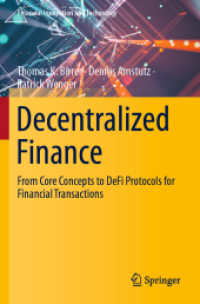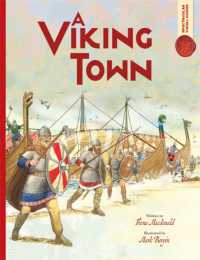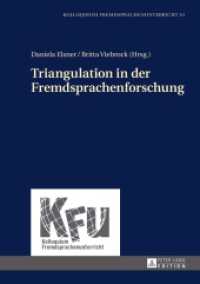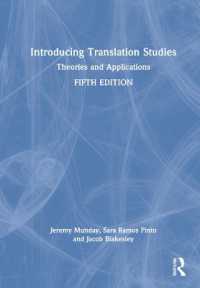- ホーム
- > 洋書
- > 英文書
- > Politics / International Relations
Full Description
After the Enlightenment is the first attempt at understanding modern political realism as a historical phenomenon. Realism is not an eternal wisdom inherited from Thucydides, Machiavelli or Hobbes, but a twentieth-century phenomenon rooted in the interwar years, the collapse of the Weimar Republic, and the transfer of ideas between Continental Europe and the United States. The book provides the first intellectual history of the rise of realism in America, as it informed policy and academic circles after 1945. It breaks through the narrow confines of the discipline of international relations and resituates realism within the crisis of American liberalism. Realism provided a new framework for foreign policy thinking and transformed the nature of American democracy. This book sheds light on the emergence of 'rational choice' as a new paradigm for political decision-making and speaks to the current revival in realism in international affairs.
Contents
Introduction; 1. The realist gambit - or the end of political science; 2. American katechon: Christian realism and the theological foundations of international relations theory; 3. The making of the realist tradition: Felix Gilbert and the reclaiming of Machiavelli; 4. The Kuhning of reason: political realism and decision-making after Thomas Kuhn; 5. Cyborg pantocrator: at the origins of neorealism; 6. The Americanization of realism: Kenneth Waltz, the security dilemma and the problem of decision-making.








